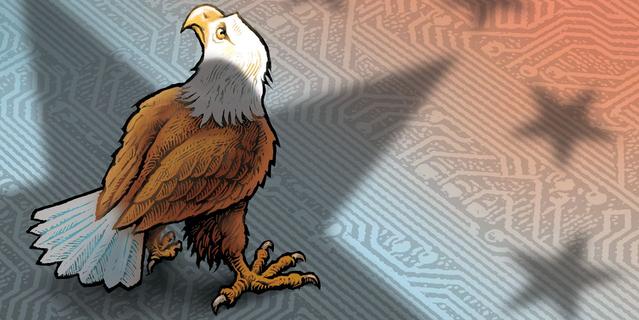
China’s 5G Soars Over America’s
America’s average 5G mobile internet speed is roughly 75 megabits per second, which is abysmal. In China’s urban centers 5G phones get average speeds of 300 megabits per second. Though that’s not quite the fastest 5G in the world—South Korea claims that title at over 400 Mbps—it’s still fast enough to download a high-definition movie in two minutes. Mobile internet speed is a central advancement of 5G, which enables a new domain of breakthrough applications with potent economic and national-security implications. American 5G upload speeds are slower than those of many developed countries, including Israel, Singapore and Canada. In Boston, Chicago and New York City, AT&T’s 5G speeds are at least 10% slower than its 4G; in Washington, Los Angeles and Austin, Texas, Verizon’s 5G speeds are at least 20% slower than the company’s 4G.
The U.S. also trails China in the global market for 5G-related services. Although American sanctions have hurt Huawei, China’s national champion is still the global leader in supplying 5G infrastructure with 30% of the market, while no U.S. firms sell 5G infrastructure abroad. Strategically significant countries including Russia, Saudi Arabia, South Africa and Turkey have installed Huawei infrastructure and are already using it to deliver 5G services.
While Beijing has prioritized broadening its 5G network, Washington has a dysfunctional relationship with the U.S. mobile industry—as typified by the Federal Aviation Administration’s hysterics over the proximity of American airports to 5G services, which operate near scores of airports around the world with no problem. For its part, China has been rapidly allocating the most efficient part of the wireless spectrum, called midband, to 5G service providers. China has deployed at least three times as much midband to 5G providers as the U.S. has. AT&T and Verizon are using the same spectrum bands for both their 4G and 5G networks. As a result, as one industry analyst aptly put it, their 5G networks are “just 4G with sprinkles on it.”

Washington’s dithering has left America well behind China in the race to build 5G infrastructure. Because 5G signals have short wavelengths, reliable service requires proximity to many wireless base stations. China has installed more than one million 5G base stations, while the U.S. has built only 100,000. The American fiber-optic network is also less dense than that of many developed countries like Japan, making it more difficult for mobile operators to deploy these small cell sites.
China’s investment in 5G also dwarfs America’s. The Innovation and Competition Act, which Senate Majority LeaderChuck Schumerhailed as “the key to preserving America’s position on the world stage as a current and future technological leader in the 21st century,” would authorize $1.5 billion in spending on 5G mobile networks through 2026. China has already spent $50 billion to build out its 5G network and is on track to spend an additional $100 billion on 5G over the next five years.
The pathetic U.S. performance in the 5G race is a sign of America’s larger failure to keep up with China on strategically important technologies. China is also ahead of America in high-tech manufacturing, green energy and many applications of artificial intelligence. On current trajectories, by 2030 it will likely lead the U.S. in the number of semiconductor chips it produces and in applications of biotechnology to defeat diseases like cancer.
In 2019 the Pentagon’s Defense Innovation Board tried to sound the alarm, stating bluntly: “China is on a track to repeat in 5G what happened with the U.S. in 4G.” The transition from 3G to 4G made possible a previously unimaginable world of mobile computing, smartphones and applications from Google Maps and Uber toFacebookand Instagram. The step up to real 5G speeds will lead to analogous breakthroughs in autonomous vehicles, virtual-reality applications like the metaverse, and other areas that have yet to be invented. Applications abound that could advantage a country’s intelligence agencies and enhance its military capabilities.
It will take far more than an additional $1.5 billion investment from Congress to change this. The Biden administration should make 5G a national priority and take the lead in building digital highways across the country as the government did in creating our national highway system. Otherwise, China will own the 5G future.
Mr. Allison, a professor of government at Harvard, is author of “Destined for War: Can America and China Escape Thucydides’s Trap?” Mr. Schmidt was CEO of Google, 2001-11 and executive chairman of Google and its successor,Alphabet Inc.,2011-17 and is a co-author of “The Age of AI: And Our Human Future.”
}})